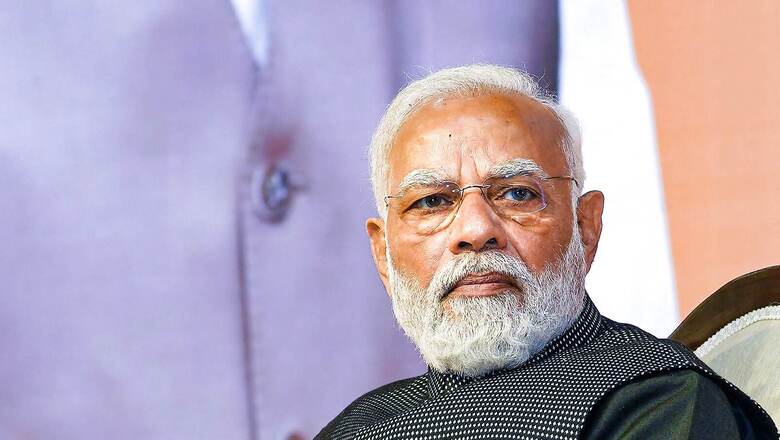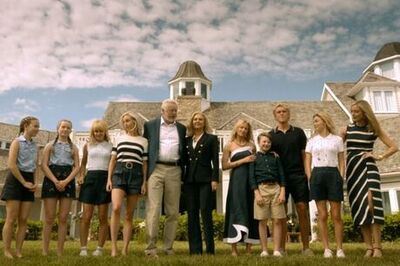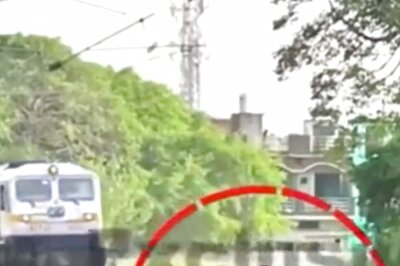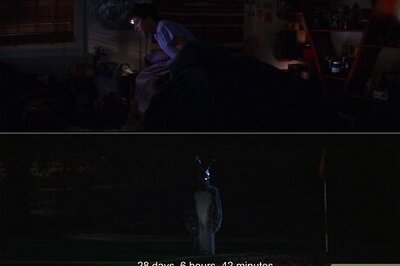
views
The Ministry of External Affairs (MEA) on Thursday termed a BBC documentary on Prime Minister Narendra Modi — titled ‘India: The Modi Question’ — a “propaganda piece” designed to push a “discredited narrative”.
The series deals with the riots that broke out in Gujarat when Modi was the chief minister. According to the description on the BBC website, the documentary is “A look at the tensions between Indian PM Narendra Modi and India’s Muslim minority, investigating claims about his role in 2002 riots that left over a thousand dead.”
Slamming the documentary, MEA spokesperson Arindam Bagchi said, “The bias, lack of objectivity and continuing colonial mindset is blatantly visible.” “It makes us wonder about the purpose of this exercise and the agenda behind it,” he said, adding that “frankly we do not wish to dignify such efforts”.
The series is produced by Richard Cookson and its executive producer is Mike Radford.
The documentary, according to some reports, has been taken down by YouTube.
The BBC responded to the controversy, saying that the documentary was “rigorously researched”, and that it also reached out to the Indian government for a response, but it declined to comment.
“The BBC is committed to highlighting important issues from around the world. The documentary series examines the tensions between India’s Hindu majority and Muslim minority and explores the politics of India’s PM Narendra Modi in relation to those tensions. This has been the source of considerable reporting and interest both in India and across the world in recent years,” a BBC spokesperson said.
“The documentary was rigorously researched according to highest editorial standards. A wide range of voices, witnesses and experts were approached, and we have featured a range of opinions – this includes responses from people in the BJP. We offered the Indian Government a right to reply to the matters raised in the series – it declined to respond,” it added.
Meanwhile, British Prime Minister Rishi Sunak shut down a Pakistani-origin MP Imran Hussain who raised the topic of the documentary in the House on Thursday, by saying he “doesn’t agree with the characterisation.”
Hussain, a Labour MP, brought up the controversial documentary, saying “He (PM Modi) was, in the FCO’s (Foreign and Commonwealth Office’s) own words, directly responsible for this violence.
“Given that hundreds were brutally killed and that families across India and the world, including here in the UK, are still without justice, does the prime minister agree with his diplomats in the foreign office that Modi was directly responsible and what more does the foreign office know of his involvement in this grave act of ethnic cleansing?” he asked.
To this, the UK PM retorted, “Mr Speaker, the UK government’s position on this has been clear and long standing and hasn’t changed. Of course, we don’t tolerate persecution anywhere, but I am not sure I agree at all with the characterisation that the honourable gentleman has put forward.”
The series received flak from House of Lords Member Lord Rami Ranger, who condemned the British broadcaster.
In a tweet, Rami slammed BBC’s biased reporting and said, “@BBC You have caused a great deal of hurt to over a billion Indians; It insults a democratically elected @PMOIndia Indian Police & the Indian judiciary. We condemn the riots and loss of life & also condemn your biased reporting.”
Calling the programme against Modi “ill-thought-out”, he also said it was an insult to the “largest democracy” of the world.
Several Twitter users who also raised complaints regarding the docu-series suggested the BBC should make a series on the 1943 Bengal famine, which led to 3 million deaths due to malnutrition under then-British prime minister Winston Churchill.
One user suggested that BBC should start ‘UK: The Churchill Question’ while another asked the broadcaster to focus on UK.
Read all the Latest India News here




















Comments
0 comment